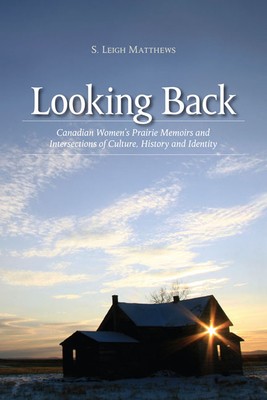
- We will send in 10–14 business days.
- Author: S Leigh Matthews
- Publisher: University of Calgary Press
- Year: 2010
- Pages: 428
- ISBN-10: 1552380963
- ISBN-13: 9781552380963
- Format: 15.2 x 22.6 x 2.8 cm, minkšti viršeliai
- Language: English
- SAVE -10% with code: EXTRA
Reviews
Description
When we think about women settlers on the Prairies, our notions tend to veer between the nostalgic image of the "cheerful helpmate" and the grim deprivation of the "reluctant immigrant." In Looking Back: Canadian Women's Prairie Memoirs and Intersections of Culture, History, and Identity, Leigh Matthews shows how a critical approach to the life-writing of individual prairie women can broaden and deepen our understanding of the settlement era. Reopening for examination a substantial body of memoirs published after 1950 but now largely out of print, Matthews engages critical and feminist theory to close the gap between our polarized stereotypes and the actual lived experiences of rural prairie women. Addressing both the limitations and possibilities of life writing, Matthews presents a sound, well-developed and well-written case for memoir as reconciling female experience to the dominant historiography of the prairie west. Reading for "failures and incoherences," the memoirs considered here reveal women's voices that probe a community's most cherished values and beliefs, reveal its conflicts and contradictions, and call leaders to account. - Catherine Cavanaugh, Athabasca University
EXTRA 10 % discount with code: EXTRA
The promotion ends in 23d.03:46:21
The discount code is valid when purchasing from 10 €. Discounts do not stack.
- Author: S Leigh Matthews
- Publisher: University of Calgary Press
- Year: 2010
- Pages: 428
- ISBN-10: 1552380963
- ISBN-13: 9781552380963
- Format: 15.2 x 22.6 x 2.8 cm, minkšti viršeliai
- Language: English English
When we think about women settlers on the Prairies, our notions tend to veer between the nostalgic image of the "cheerful helpmate" and the grim deprivation of the "reluctant immigrant." In Looking Back: Canadian Women's Prairie Memoirs and Intersections of Culture, History, and Identity, Leigh Matthews shows how a critical approach to the life-writing of individual prairie women can broaden and deepen our understanding of the settlement era. Reopening for examination a substantial body of memoirs published after 1950 but now largely out of print, Matthews engages critical and feminist theory to close the gap between our polarized stereotypes and the actual lived experiences of rural prairie women. Addressing both the limitations and possibilities of life writing, Matthews presents a sound, well-developed and well-written case for memoir as reconciling female experience to the dominant historiography of the prairie west. Reading for "failures and incoherences," the memoirs considered here reveal women's voices that probe a community's most cherished values and beliefs, reveal its conflicts and contradictions, and call leaders to account. - Catherine Cavanaugh, Athabasca University


Reviews